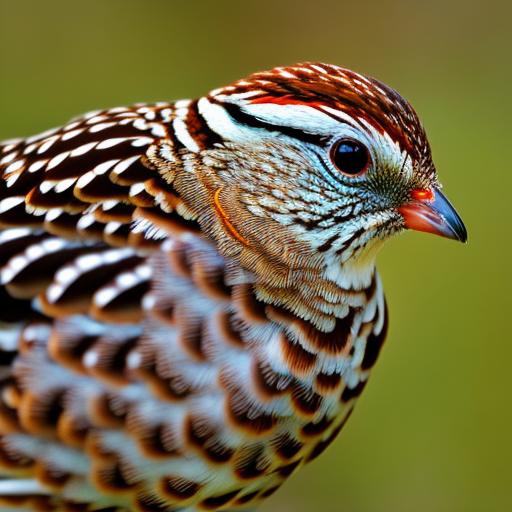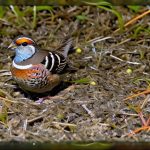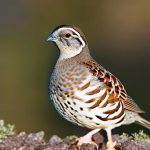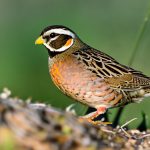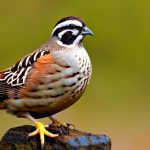Keeping quail in Brisbane can be a rewarding and enjoyable experience for both hobbyists and commercial breeders. Quail are small, ground-dwelling birds that are known for their delicious eggs and meat. They are relatively easy to care for and require minimal space, making them an ideal choice for urban and suburban settings. In addition to their practical benefits, quail also make charming and entertaining pets, with their unique calls and social behaviors. Whether you are interested in raising quail for their eggs, meat, or simply as pets, there are several important factors to consider to ensure the health and well-being of your quail. This article will provide a comprehensive guide to keeping quail in Brisbane, covering everything from choosing the right species to housing, feeding, health management, breeding, and legal considerations.
Key Takeaways
- Quail keeping in Brisbane is a popular and rewarding hobby that requires proper knowledge and care.
- When choosing the right quail species for Brisbane, consider factors such as climate, space, and purpose of keeping quail.
- Housing and enclosure requirements for quail in Brisbane include providing adequate space, shelter, and protection from predators.
- Feeding and nutrition for quail in Brisbane should consist of a balanced diet including commercial feed, fresh water, and occasional treats.
- Health and disease management for quail in Brisbane involves regular observation, proper hygiene, and seeking veterinary care when necessary.
- Breeding and reproduction of quail in Brisbane can be successful with proper nesting areas, breeding pairs, and incubation equipment.
- Legal considerations for keeping quail in Brisbane include obtaining necessary permits and complying with local regulations regarding animal welfare and biosecurity.
Choosing the Right Quail Species for Brisbane
When it comes to keeping quail in Brisbane, there are several species to choose from, each with its own unique characteristics and requirements. The most common species of quail kept in Brisbane include the Japanese quail (Coturnix japonica), the Bobwhite quail (Colinus virginianus), and the King quail (Coturnix chinensis). Japanese quail are the most popular choice for egg and meat production, as they are prolific layers and grow quickly. Bobwhite quail are known for their sweet, melodious calls and are often kept for their ornamental value. King quail, also known as button quail, are the smallest of the three species and are prized for their colorful plumage and gentle nature. When choosing a quail species for your Brisbane setup, it is important to consider your specific goals and preferences. If you are primarily interested in egg or meat production, Japanese quail may be the best choice. If you are looking for a charming addition to your backyard or aviary, Bobwhite or King quail may be more suitable.
Housing and Enclosure Requirements for Quail in Brisbane
Proper housing and enclosure are essential for the health and well-being of quail in Brisbane. Quail are ground-dwelling birds that require ample space to move around and exhibit natural behaviors. For Japanese quail, a minimum of 1 square foot of space per bird is recommended, while larger species such as Bobwhite quail may require more space. The enclosure should be secure and predator-proof, with a solid floor to prevent digging and escape. It is important to provide adequate ventilation and natural light, as well as protection from extreme temperatures. Bedding material such as straw or wood shavings should be provided for nesting and dust bathing. Additionally, providing hiding spots and perches can help reduce stress and promote natural behaviors. If you plan to keep quail outdoors, a covered run or aviary is essential to protect them from predators and the elements. Overall, the key to successful housing and enclosure for quail in Brisbane is to provide a safe, comfortable, and stimulating environment that meets their specific needs.
Feeding and Nutrition for Quail in Brisbane
Proper nutrition is crucial for the health and productivity of quail in Brisbane. A balanced diet should include a high-quality commercial feed specifically formulated for quail, as well as access to fresh water at all times. Japanese quail require a diet high in protein (20-25%) to support their rapid growth and egg production, while Bobwhite and King quail may thrive on slightly lower protein levels. In addition to commercial feed, quail can also benefit from supplemental treats such as mealworms, fruits, vegetables, and greens. It is important to monitor their food intake and adjust feeding amounts based on their age, activity level, and reproductive status. Providing grit or small stones is essential to help quail grind their food in their gizzards for proper digestion. It is also important to avoid feeding them toxic or harmful foods such as avocado, chocolate, caffeine, and salty or sugary treats. By providing a well-balanced diet that meets their nutritional needs, you can ensure that your quail remain healthy and productive.
Health and Disease Management for Quail in Brisbane
Maintaining the health of your quail is essential for their overall well-being and productivity. Regular observation and monitoring of your birds can help detect any signs of illness or distress early on. Common health issues in quail may include respiratory infections, parasites, injuries, and reproductive disorders. It is important to provide a clean and sanitary environment to prevent the spread of diseases, as well as regular cleaning and disinfection of feeders, waterers, and housing. Quarantining new birds before introducing them to your existing flock can help prevent the spread of diseases. Additionally, providing a balanced diet, access to clean water, and proper housing can help boost their immune system and reduce the risk of illness. If you notice any signs of illness or abnormal behavior in your quail, it is important to seek veterinary care promptly to diagnose and treat any health issues. By practicing good hygiene, providing proper nutrition, and monitoring their health regularly, you can help ensure that your quail remain healthy and disease-free.
Breeding and Reproduction of Quail in Brisbane

Breeding quail can be a rewarding experience for both hobbyists and commercial breeders in Brisbane. Japanese quail reach sexual maturity at around 6-8 weeks of age and can lay up to 300 eggs per year under optimal conditions. Bobwhite quail typically start breeding at around 16 weeks of age and may produce fewer eggs compared to Japanese quail. King quail are known for their monogamous behavior and may form long-term pair bonds during the breeding season. To encourage successful breeding, it is important to provide a suitable nesting area with soft bedding material such as straw or hay. Collecting and storing eggs properly can help maximize hatchability rates when incubating them artificially or allowing broody hens to hatch them naturally. It is important to monitor the breeding behavior of your quail closely and provide proper nutrition to support egg production and incubation. By understanding the reproductive behavior of your chosen quail species and providing suitable conditions for breeding, you can enjoy the satisfaction of raising new generations of healthy quail.
Legal Considerations for Keeping Quail in Brisbane
Before embarking on keeping quail in Brisbane, it is important to be aware of any legal considerations or regulations that may apply to keeping poultry on your property. In some areas, there may be local ordinances or zoning restrictions that govern the keeping of poultry, including quail. It is important to check with your local council or authorities to ensure that you are compliant with any relevant regulations regarding the number of birds allowed, setback requirements, noise restrictions, waste management, and other considerations. Additionally, if you plan to sell quail eggs or meat commercially, you may need to obtain permits or licenses from regulatory agencies such as Queensland Health or Safe Food Queensland. By familiarizing yourself with any legal considerations related to keeping quail in Brisbane, you can ensure that you are operating within the law and avoid any potential issues or penalties.
In conclusion, keeping quail in Brisbane can be a fulfilling and enjoyable endeavor for both individuals and businesses alike. By choosing the right species, providing suitable housing and enclosure, offering proper nutrition, managing health and disease effectively, understanding breeding behavior, and being aware of legal considerations, you can create a successful and sustainable environment for raising healthy quail in Brisbane. Whether you are interested in producing eggs or meat for personal consumption or commercial sale, or simply enjoy the company of these charming birds as pets, keeping quail can be a rewarding experience that brings joy and satisfaction to your life. With proper care and attention to their specific needs, your quail can thrive in their new home in Brisbane.
If you’re interested in keeping quail in Brisbane, you may also want to explore the article on caring for goslings at Poultry Wizard. Understanding the care and maintenance of goslings can provide valuable insights into raising poultry and may offer additional knowledge that can be applied to your quail-keeping endeavors.
FAQs
What are the regulations for keeping quail in Brisbane?
In Brisbane, the regulations for keeping quail may vary depending on the specific area and zoning regulations. It is important to check with the local council or relevant authorities to ensure compliance with any regulations or restrictions.
What are the housing requirements for keeping quail in Brisbane?
When keeping quail in Brisbane, it is important to provide suitable housing that meets the birds’ needs. This includes a secure and predator-proof enclosure with adequate space for the quail to move around, as well as protection from the elements and access to food and water.
What do quail eat and how can I provide for their dietary needs in Brisbane?
Quail are omnivorous birds and require a balanced diet that includes a combination of commercial quail feed, grains, seeds, and fresh greens. In Brisbane, quail keepers can provide for their dietary needs by offering a variety of food options and ensuring access to clean water at all times.
What are the key considerations for keeping quail in Brisbane’s climate?
Brisbane’s climate can be warm and humid, so it is important to consider the impact of weather on quail keeping. Providing adequate shade, ventilation, and access to water is essential to help quail cope with the heat. Additionally, protection from extreme weather events such as storms and heavy rain should be taken into account.
Are there any specific health concerns for quail in Brisbane?
Quail in Brisbane may be susceptible to certain health concerns, including parasites, diseases, and heat stress. It is important for quail keepers to monitor the birds’ health, practice good hygiene, and seek veterinary care if any health issues arise. Additionally, providing a clean and well-maintained living environment can help prevent health problems.
Meet Walter, the feathered-friend fanatic of Florida! Nestled in the sunshine state, Walter struts through life with his feathered companions, clucking his way to happiness. With a coop that’s fancier than a five-star hotel, he’s the Don Juan of the chicken world. When he’s not teaching his hens to do the cha-cha, you’ll find him in a heated debate with his prized rooster, Sir Clucks-a-Lot. Walter’s poultry passion is no yolk; he’s the sunny-side-up guy you never knew you needed in your flock of friends!

